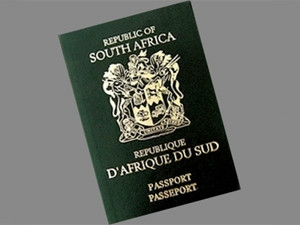
Passports and second-issue identity documents are now being put into citizens' hands much faster, as the Department of Home Affairs' modernisation project bears fruit.
The department is spending a total of about R1.2 billion on its modernisation programme, which is expected to be wrapped up by the 2015/16 financial year. The plan is to replace its outdated and obsolete legacy systems, as well as improve security.
After a hiatus caused by a dispute with Gijima, which was implementing what was then called "Who am I Online", the project kicked off again in the most recent financial year. So far, as a result of improvements, the department has beaten its goals for issuing passports and is getting second-issue ID books out ahead of target.
The project provides an integrated IT platform to decrease the turnaround time for issuing identity documents, as well as birth, death and marriage certificates, passports and visas, among others.
The system supports transactional processing and simultaneously provides information that includes photographs, fingerprints, signatures, voice recordings, demographic information and scanned supporting documents.
According to the revised estimates of national expenditure, 95.2% of machine-readable passports, issued manually, are ready in 24 days. The bulk of the travel documents processed via live capture are out within 13 days.
Some 92.5% of citizens' first issue identity documents are delivered in 54 days, against a target of 95%, but subsequent IDs are almost always issued in 47 days.
Home affairs is replacing identity books with smart cards and will spend R5.5 million to "enhance" the offices that will be rolling out these cards. Its budget for identification services has also grown R81 million, to R337.7 million.
The smart ID card process kicked off in May, when Altech Card Solutions won the R40 million contract to provide the Government Printing Works with card personalisation equipment. Gemalto Southern Africa has a deal, estimated to be worth R199 million, to supply pre-printed polycarbonate cards, containing a contactless microchip.
Moving to the new system will cost South Africans billions, as each identity book will need to be swapped for a card at a cost to individuals of around R140. Home affairs will phase in this process, based on birth months.
Share